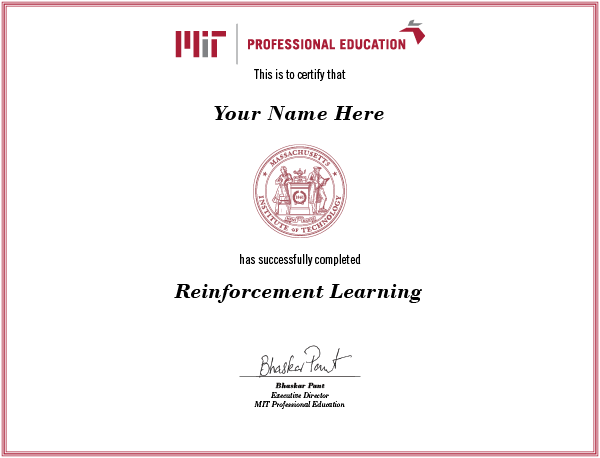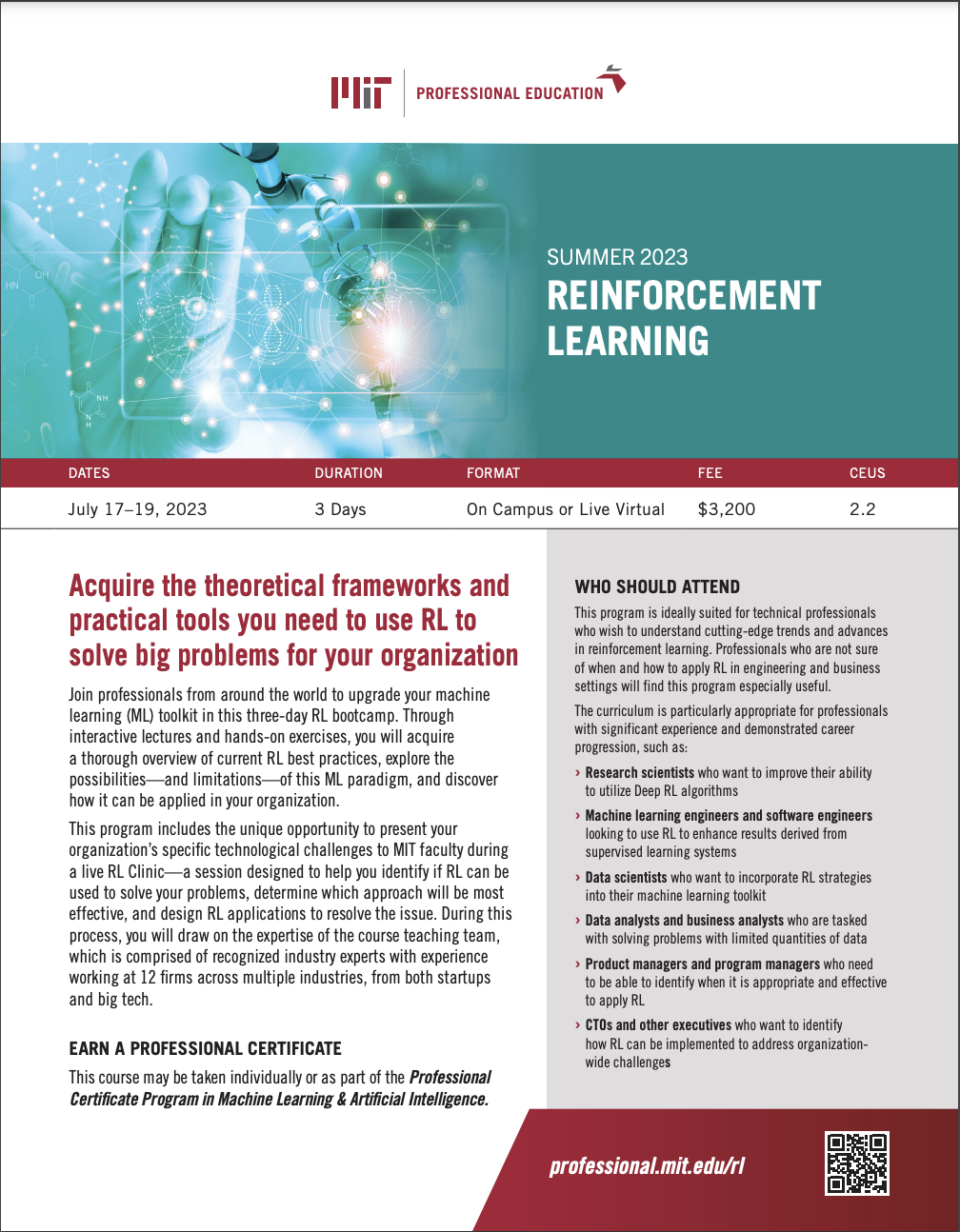This course is offered in a hybrid format, with in-person and live online cohorts attending simultaneously. When registering, select the appropriate registration button below.
Reinforcement learning (RL), is enabling exciting advancements in self-driving vehicles, natural language processing, automated supply chain management, financial investment software, and more. In this three-day course, you will acquire the theoretical frameworks and practical tools you need to use RL to solve big problems for your organization.
This course may be taken individually or as part of the Professional Certificate Program in Machine Learning & Artificial Intelligence. COMPLETING THE COURSE WILL CONTRIBUTE 3 DAYS TOWARDS THE CERTIFICATE.






